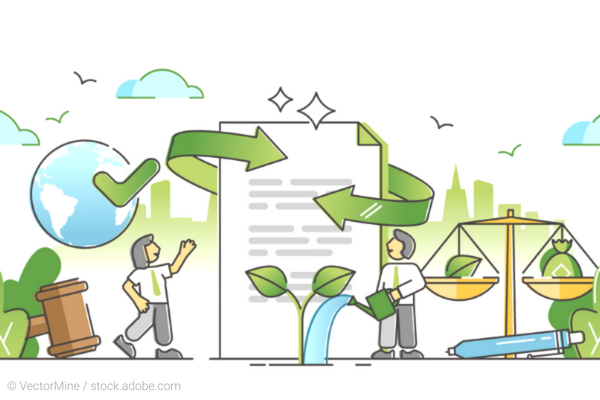Learning for sustainability: towards a green future

Getting started with sustainability
The recent proposal for a Council Recommendation on learning for environmental sustainability reminds us how important education is in overcoming climate and environmental challenges.
Educators need to feel confident in teaching about the environment and sustainability. The Getting Started with Sustainability in Schools platform provides classroom-ready resources, case studies, and inspiration for teachers to explore new ways of integrating sustainability competences into their classrooms, schools, and communities.
A Tale of 2 Futures — coordinated by the Scottish sustainability consultancy and training company The Surefoot Effect CIC — shows the potential impact of Erasmus+ programmes in this field. The project enables educators to train groups of people on the topic and motivate them to adopt sustainable habits in a way that was compatible with their daily lives. As a result, some teachers in Spain included ‘carbon conversations’ in their English lessons, created a food garden in the school, and integrated sustainable activities into their daily work as well as kickstarting environmental education projects.
A whole-school approach to sustainability
‘Sustainability is not something to learn, it’s something to live!’ is not just an expression for Dutch organisation Leren voor Morgen. Its Whole School Approach to Sustainable Development framework brings together schools and local entrepreneurs, residents, parents, community organisations, and the local council to find solutions for sustainable issues together.
The Whole School Approach to Sustainable Development framework
In France, the eco-delegate figure has made strides as a proactive way to involve and empower students at an institutional level. Secondary school classes appoint two students as environmental ambassadors for sustainable development. These students are mainly tasked with raising awareness of environmental challenges, promoting eco-responsible actions, and implementing projects, among other things.
This guide (in French), outlined by France’s Ministry of Education, offers eco-delegates tips and support for implementing the ecological transition in their schools.
Sustainability projects for the classroom
Stimulating students’ creative skills was the strategy of choice for the CliMates – Together for the BetterErasmus+ project, involving teachers from Estonia, France, Germany, Hungary, and Spain. During this project, five schools developed CliMApp, an app for young learners that combines digital learning with theoretical and hands-on learning.
Each partner school created a local app route that allows users to go on a ‘treasure hunt’ in their local region and to take a multiple-choice quiz. Users can also create their own route by adding coordinates and questions to one of the app versions, or even produce their own app thanks to the CliMApp project material for basic app programming. Other interesting project outcomes included an ‘energy puzzlehunt’ — taught by older students — and long-term international curriculum activities.
TheLocal in Global project produced similar innovative activities, in particular a simulation game on sustainable development. This was called ‘Krapowa’, after a fictional town that served as a framework for developing new, transformative ideas. The game was designed to encourage local initiatives to think about solutions for the sustainable development of structurally weak rural areas in Central and Eastern Europe.
The Welcome to Krapowa – A simulation game on sustainable development manual provides instructions, working materials, and detailed explanations to implement the game in different contexts and with different target groups. It also includes workshops on practical skills such as fundraising or campaign management to strengthen participants’ negotiation skills and self-efficacy.
Additional information
-
Evidence:N/A
-
Funding source:European Union and others
-
Intervention level:N/A
-
Intervention intensity:N/A
-
Participating countries:ArmeniaBulgariaEstoniaFranceGermanyHungaryNetherlandsRepublic of MoldovaSpainUkraineUnited Kingdom
-
Target audience ISCED:Primary education (ISCED 1)Lower secondary education (ISCED 2)Upper secondary education (ISCED 3)

